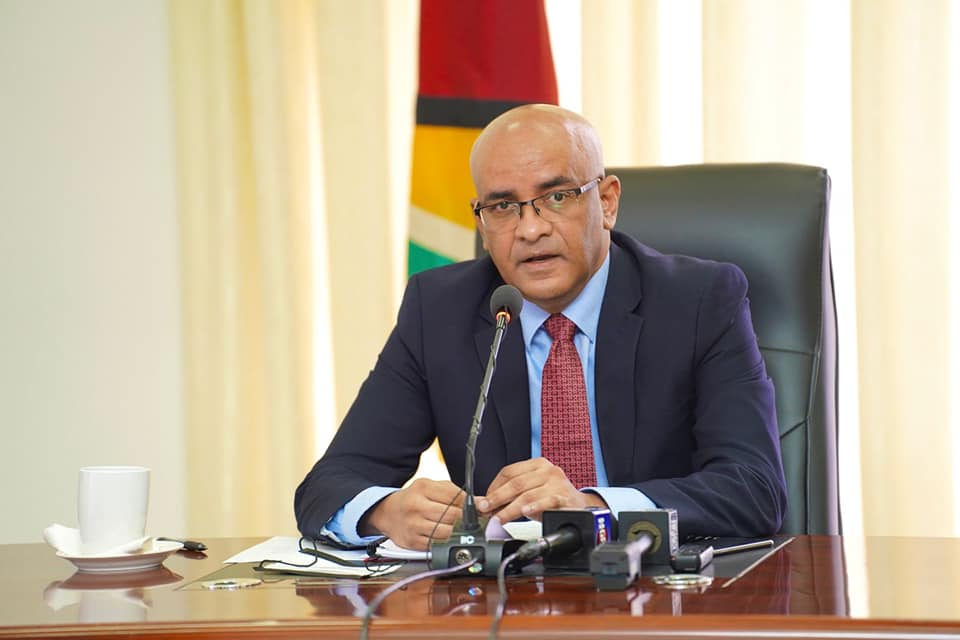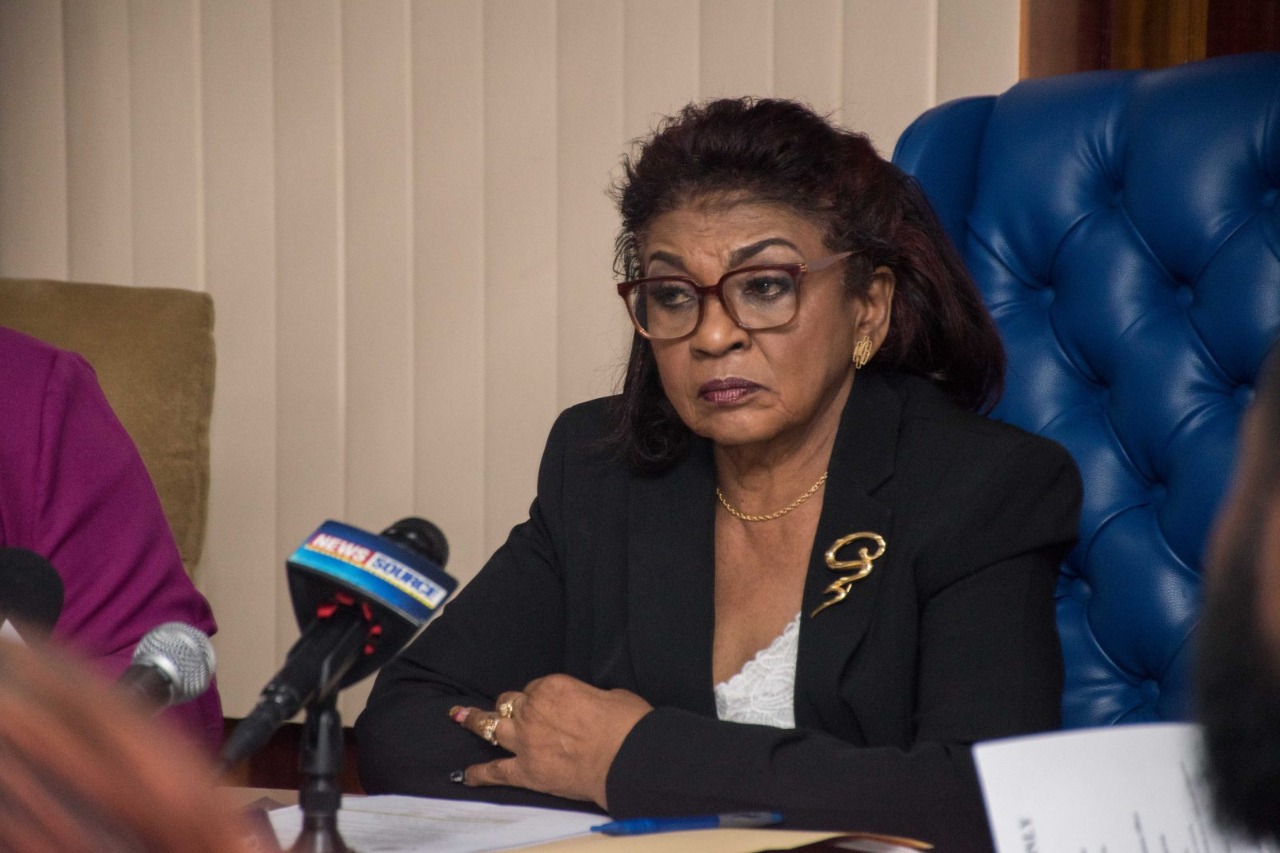By Vishani Ragobeer
Vice President Dr. Bharrat Jagdeo has rejected assertions that Guyanese owe oil companies millions of dollars for the debt incurred to fund oil production offshore, stating instead that expected profits from the oil and gas sector remain intact.
As he has done before, the Vice President sought to clarify statements made by an international analyst.
That analyst, as reported by a local newspaper, concluded that each Guyanese owes ExxonMobil $9 million, as the company amasses debt to fund oil exploration and production offshore.
The Vice President disagreed with this.
“I don’t owe no $9 million.
“We don’t owe no $9 million because the Government of Guyana has not guaranteed paying back to any investor money lost or gained in the oil and gas sector,” the Vice President said at a press conference on Wednesday.
It wasn’t just that he rejected the assertions; the former President explained what he believed was a flawed analysis.
He noted that citizens would only incur a debt if the State agrees, beforehand, to accept that debt. Despite the analyst’s assertions, Dr. Jagdeo said that was not done.
“…we don’t owe any money, if they [the oil company] can’t pay it back [investors], then [the investors] can levy on the assets of the company but not on [Guyana’s] treasury or the consolidated fund,” Dr Jagdeo emphasised.
Further, all expenses are borne by the company; this is reflected in their balance sheets. And unless there is a binding arrangement or agreement from the government, Guyana nor Guyanese will be responsible for any debt incurred. In this case, there is no binding arrangement/agreement.
Oil companies can only recover their costs when they start producing oil. As such, even if a company spends millions of dollars searching for oil but they are unsuccessful, they stand the costs alone, the Vice President said.
“If you can’t develop a project, you lose your money…If you move on to develop, then you can recover your costs,” Dr. Jagdeo said.
Essentially, if a company is successful in its search for oil, as the ExxonMobil-led consortium has been in Guyana’s Stabroek Block, the company can routinely deduct money invested into the project’s development before splitting profits with the government. This is known as cost recovery.
Even with cost recovery provision, however, the Vice President said that Guyanese do not stand the costs. As such, they incur no debt and the percentage of money the country receives remains the same.
For a simpler explanation, it is important to understand how the oil revenues are managed under the production sharing agreement (PSA) with the ExxonMobil-led consortium that is currently producing oil in the Stabroek Block offshore Guyana.
Out of the entire amount of oil produced during one period (in other words, 100 per cent of the oil lifted), the oil company can recover no more than 75 per cent of its costs.
Of the remaining 25 per cent – the sum remaining after expenses are deducted – the oil company (in this case the ExxonMobil-led consortium with CNOOC and Hess) and the government splits the profit half and half. That means, the company gets 12.5 per cent of the remaining revenue and the government gets 12.5 per cent.
In addition to that 12.5 per cent profit, the government also gets a two per cent royalty – or extra payment from the oil companies. ExxonMobil, on Wednesday, explained that this two per cent royalty is two per cent of the total revenue (the 100 per cent) and not two per cent of the profit share. That means that ultimately, Guyana gets more money- in fact, it amounts to 14.5 per cent of the total revenue.
“Even if they invest more or less in a particular year, it doesn’t mean that in that year, it will have a reduction of that 14.5 per cent (Guyana gets) because there is a (75 per cent) cap they can use for compensating cost,” Dr Jagdeo explained.














You are full of shet! Under you the PNC turned the tables and accused the PPP of rigging. What a joke!
If you had any decency you would resign. But you won’t.